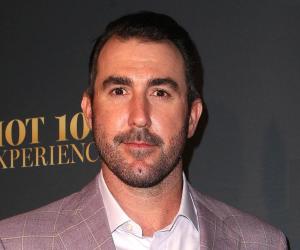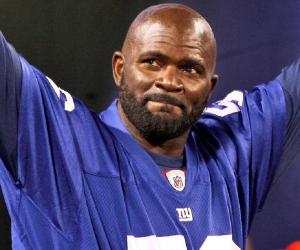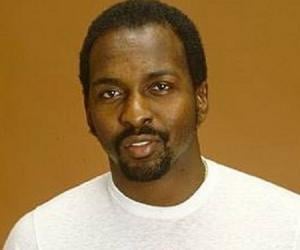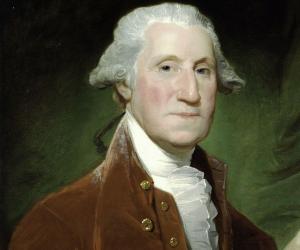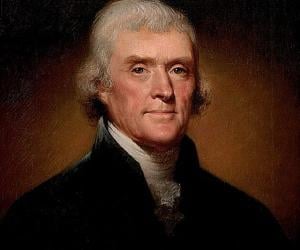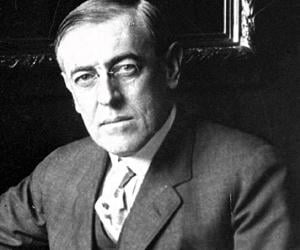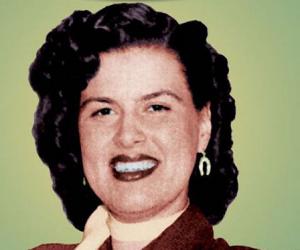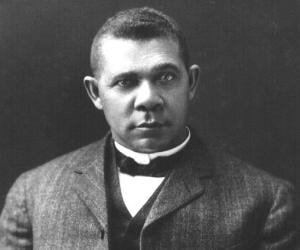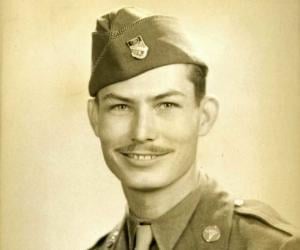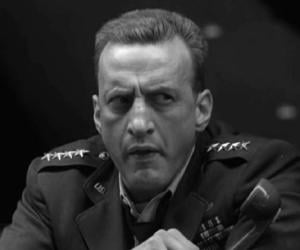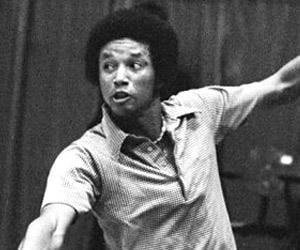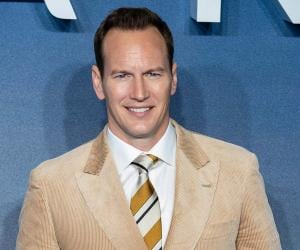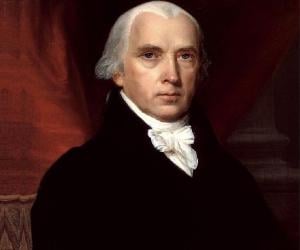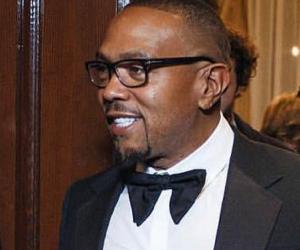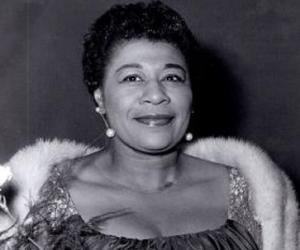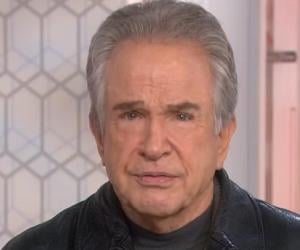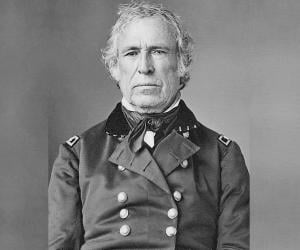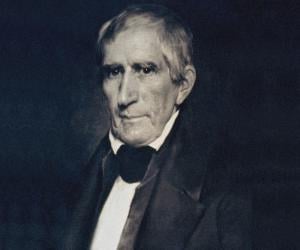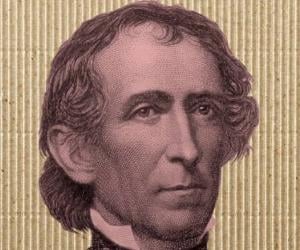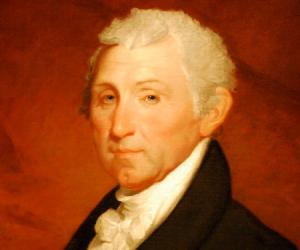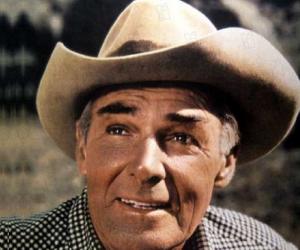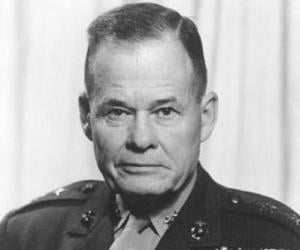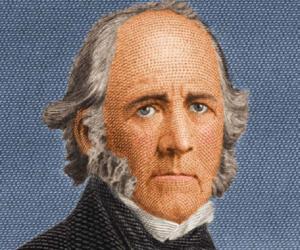Famous People From Virginia
Virginia is the 35th largest state in the whole of the United States. Known for being one of the first few colonies captured by the British a few hundred years ago, the State of Virginia is famous for its great historic significance. There are many more celebrities who hail from this famous American state, scroll down to know their names. Virginia is surrounded by several states, namely Maryland, North Carolina, Tennessee, Kentucky as well as the American capital Washington D.C. The state is a nature lover’s paradise, thanks to its abundance in flora and fauna. The state of Virginia is also famous for producing several famous celebrities. Singers/songwriters Chris Brown, Pharrell Williams, Timbaland and Jason Mraz are a few famous people from this American state. Some of the songs of these acclaimed artistes have been chartbusters and the popularity of the tracks has catapulted them to the status of pop icons. The names of a few other celebrities from Virginia have been listed below, kindly go through them.
Vote for Your Favourite People From Virginia
Right IconThis ranking is based on an algorithm that combines various factors, including the votes of our users and search trends on the internet.
Birthdate: February 22, 1732
Sun Sign: Pisces
Died: December 14, 1799
America’s first president, George Washington led the country with integrity, firmness and prudence that made him one of the greatest presidents in American history. He became a national hero before assuming presidency, when he led the Continental Army to victory against the British during the American Revolution.
2
Sandra Bullock(One of the Highest-Paid Actresses, Known for Her Films: 'Speed', 'The Blind Side' and 'Gravity')
Birthdate: July 26, 1964
Sun Sign: Leo
One of the highest-paid actresses in the world, actress Sandra Bullock is the recipient of several accolades, including an Academy Award. After making her debut in the late 1980s, she became extremely popular in the 1990s with her roles in dramatic movies. She is also the founder of the production company Fortis Films.
Birthdate: April 13, 1743
Sun Sign: Aries
Died: July 4, 1826
The 2nd Vice President and the 3rd President of America, Thomas Jefferson was one of the Founding Fathers of USA and the principal draftsman of the Declaration of Independence. Jefferson was a staunch advocate of democracy and a strong believer of individual rights and religious freedom, despite the fact that he himself owned nearly 600 slaves.
Birthdate: June 7, 1975
Sun Sign: Gemini
Former professional basketball player, Allen Iverson, is regarded as one of the greatest and most influential basketball players of all time. He retired after playing 14 seasons in the National Basketball Association (NBA) for various teams. At the time of his retirement, he was an 11-time NBA All-Star. A popular star, he has made a few cameo appearances in films.
Birthdate: April 5, 1973
Sun Sign: Aries
Rapper-singer Pharrell Williams began his career with The Neptunes, the record-production duo he had formed with Chad Hugo. He was also part of the band N.E.R.D., as its lead vocalist. He is known for his Academy Award-nominated song Happy from the Despicable Me 2 soundtrack and his 13 Grammy wins.
Birthdate: May 5, 1989
Sun Sign: Taurus
Height: 6'1" (185 cm)
Birthdate: December 28, 1856
Sun Sign: Capricorn
Died: February 3, 1924
From presidential cabin of Princeton University to presidential office of the White House, Woodrow Wilson ushered a series of progressive reforms that changed the American politics forever. The 28th President of USA, Woodrow Wilson introduced several ground-breaking policies including the Federal Reserve Act. He played a key role in founding the first intergovernmental organisation—the League of Nations—for which he was awarded the Nobel Peace Prize.
Birthdate: January 19, 1807
Sun Sign: Capricorn
Died: October 12, 1870
A commander of the Confederate States Army during the American Civil War, Robert E. Lee commanded the Army of Northern Virginia. He was a skilled tactician who served in the US Army for 32 years. Brilliant from a young age, he was a top graduate of the US Military Academy. In his later years, he became president of Washington College.
9
Patsy Cline(One of the Most Influential Vocalists of the 20th Century)
Birthdate: September 8, 1932
Sun Sign: Virgo
Died: March 5, 1963
Patsy Cline was an American singer widely regarded as one of 20th century's most influential, celebrated, and respected vocalists. Her singing style helped influence several artists and musical genres. She also helped define the Nashville Sound style associated with country music. She has been a major influence on artists, such as Loretta Lynn, Reba McEntire, Linda Ronstadt, and Dottie West.
Birthdate: June 21, 1979
Sun Sign: Gemini
American television and film actor, Chris Pratt won critical applause, commercial success and numerous awards for his work in The Lego Movie, Guardians of the Galaxy and later Jurassic World. However, before these, he made a name for himself with television shows Everwood and Parks and Recreation. Interestingly, he landed his first role while waiting tables at a restaurant.
11
Shirley MacLaine(American Actress Who is Known for Her Portrayals of Quirky, Strong-Willed and Eccentric Women)
Birthdate: April 24, 1934
Sun Sign: Taurus
Shirley MacLaine is one of the most decorated American actresses of all time, having won several prestigious awards, such as the Academy Award. Identified as one of the last surviving actresses from Hollywood Golden Age, Shirley MacLaine has played a key role in popularizing New Age spirituality in the West. She also believes in concepts, such as reincarnation.
12
Missy Elliott(Rapper Known for Singles "Get Ur Freak On," "The Rain," and "Lose Control.")
Birthdate: July 1, 1971
Sun Sign: Cancer
Four-time Grammy-winning rapper Missy Elliott, known for her chartbusting tracks such as Get Ur Freak On, was ranked fifth on Billboard’s 100 Greatest Music Video Artists of All Time list. She was initially part of the R&B group Sista and then collaborated with Timbaland in the collective Swing Mob.
13
Booker T. Washington(American Educator Who was the Dominant Leader of the African-American Community Between 1890 and 1915)
Birthdate: April 5, 1856
Sun Sign: Aries
Died: November 14, 1915
Booker T. Washington was born into slavery but rose to be an advisor to many U.S. presidents and also became the director of the Tuskegee Institute. His Atlanta Compromise, initially accepted and later rejected by black leaders, urged the blacks to work for their freedom through education and not revolt.
14
Gabby Douglas(Artistic Gymnast and 1st African American to Become the Olympic Individual All-Around Champion)
Birthdate: December 31, 1995
Sun Sign: Capricorn
Retired artistic gymnast Gabby Douglas became an all-around Olympic champion in 2012, becoming the first African-American to achieve the feat. She is also the first American to win gold in both the individual and team competitions at the same Olympic event. She inspired the biopic The Gabby Douglas Story.
Birthdate: March 17, 1964
Sun Sign: Pisces
An actor, producer, and director who first rose to fame as a teenage star in the late 1970s, Rob Lowe has been active in both TV shows and films. His public image and film career declined after a sex tape scandal in the late 1980s, but he has been able to resurrect his career successfully.
Birthdate: February 7, 1919
Sun Sign: Aquarius
Died: March 23, 2006
Desmond Doss was a US Army corporal. Doss served as a combat medic in World War II. For his actions during the Battle of Okinawa, Desmond Doss became the only conscientious objector to be honored with the prestigious Medal of Honor as he saved 75 men. His life and work inspired several books and the biographical war film Hacksaw Ridge.
17
Jason Sudeikis(Actor, Comedian and Fomer Cast Member of the Comedy-sketch Show 'Saturday Night Live')
Birthdate: September 18, 1975
Sun Sign: Virgo
Saturday Night Live (SNL) has been a great platform for many exceptional comedians and actors, including Jason Sudeikis. Born with anosmia, Jason Sudeikis does not have the ability to detect smells. Nevertheless, one can say that he is blessed with the ability to smell out good scripts as many of his films have been major box office hits.
18
Ariel Winter(Actress and Singer Known for Her Role as ‘Alex Dunphy’ in ABC Comedy Series ‘Modern Family’)
Birthdate: January 28, 1998
Sun Sign: Aquarius
The youngest of the popular Workman siblings, Ariel Winter Workman has established herself as a successful actress after starting her career as a child star. She has also contributed immensely as a voice actress in films and video games.
19
Patton Oswalt(Known for His Performance in the Sitcom 'The King of Queens')
Birthdate: January 27, 1969
Sun Sign: Aquarius
Best known for his role in the sitcom The King of Queens, comedian and actor, Patton Oswalt, has been active in the entertainment industry for over 30 years. From appearing in his own TV show in the 1990s to making it big as a film actor, he has had a fulfilling career. He loves dogs and has worked with PETA.
20
Justin Verlander
(One of the Greatest Baseball Pitchers in History)
Birthdate: February 20, 1983
Sun Sign: Pisces
Justin Verlander is an American baseball player who has played for the Houston Astros and Detroit Tigers of Major League Baseball. An eight-time MLB All-Star, Verlander has won prestigious awards like the Babe Ruth Award. He has also been an important member of the US national team, helping his side win the silver medal at the 2003 Pan American Games.
21
George C. Scott(Actor, Director, and Producer Known for His Film ‘Anatomy of a Murder’)
Birthdate: October 18, 1927
Sun Sign: Libra
Died: September 22, 1999
George C. Scott won the Academy Award for the film Patton but also became the first actor to reject the award, as he believed no two actors or performances could be compared. Fans also loved him for his roles in A Christmas Carol, Dr. Strangelove, and Anatomy of a Murder.
22
Arthur Ashe(The Only Black Man to Win the Singles Title at Wimbledon, the US Open, and the Australian Open)
Birthdate: July 10, 1943
Sun Sign: Cancer
Died: February 6, 1993
Tennis player Arthur Ashe is best remembered for his three Grand Slam singles wins. He became the first Black player to be named to the U.S. Davis Cup team. He contracted AIDS from a blood transfusion during a bypass surgery and devoted his final years to AIDS awareness campaigns.
23
Patrick Wilson(Actor and singer Best Known for His Role as ‘Joe Pitt’ in the TV Miniseries ‘Angels in America’)
Birthdate: July 3, 1973
Sun Sign: Cancer
Patrick Wilson is an American actor, director, and singer. He is known for his contribution across all the three major acting mediums. Well-known for playing demonologist Ed Warren in popular supernatural horror film, The Conjuring, Patrick Wilson is often cast in horror films, due to which he has earned a reputation as a scream king in Hollywood.
24
Lawrence Taylor
(Former American football Outside linebacker)
Birthdate: February 4, 1959
Sun Sign: Aquarius
Height: 6'3" (190 cm)
Birthdate: March 16, 1751
Sun Sign: Pisces
Died: June 28, 1836
James Madison played an important role in drafting the US Constitution and the US Bill of Rights and is hailed as the Father of the Constitution. He also co-wrote The Federalist Papers, considered to be a seminal work of political science. As president, he led the country into the 1812 war and historians place him as an above-average president.
Birthdate: June 23, 1929
Sun Sign: Cancer
Died: May 15, 2003
A woman of many talents, June Carter Cash was an American singer-songwriter, author, comedian, actress, and dancer. In 2003, she was named in Country Music Television's 40 Greatest Women of Country Music list. Her relationship with Johnny Cash inspired the 2005 film Walk the Line, where she was portrayed by Reese Witherspoon. June was also a well-known philanthropist.
Birthdate: June 29, 1994
Sun Sign: Cancer
Camila Mendes is best known for her Teen Choice Award-winning performance as Veronica Lodge in the CW series Riverdale. She has also been seen in the films Palm Springs and The Perfect Date. Born to Brazilian parents, Camila is said to have faced racial discrimination during her audition days.
Birthdate: July 1, 1982
Sun Sign: Cancer
Hilarie Burton is an American actress known for her work in TV series One Tree Hill. Also known for her good looks, Burton has graced the covers of popular magazines and is often named in lists like Hottest Women and Sexiest Women. Over the years, Burton has played an important role in exposing certain celebrities for their sexual misconduct.
29
Grant Gustin(Actor and Singer Best Known for His Roles as ‘Barry Allen’ in the TV Series ‘The Flash’)
Birthdate: January 14, 1990
Sun Sign: Capricorn
Grant Gustin is best known as Barry Allen/The Flash from the series The Flash and the entire Arrowverse TV franchise. Fans have also loved him as Sebastian Smythe in the series Glee. He also portrayed Baby John in the Broadway revival of the musical West Side Story.
30
Moses Malone
(Basketball player)
Birthdate: March 23, 1955
Sun Sign: Aries
Died: September 13, 2015
Height: 6'10" (208 cm)
Birthdate: March 22, 1982
Sun Sign: Aries
Height: 5'1" (155 cm)
Birthdate: August 31, 1979
Sun Sign: Virgo
Wrestler Mickie James, who is associated with WWE’s Raw brand, was initially known in the wrestling circuit as Alexis Laree. She has worked for NWA: TNA and was part of the stable The Gathering. The five-time WWE Women's Champion has also released several hit country tracks, such as Shooting Blanks.
33
David Arquette(Actor, Director and Former Professional Wrestler Best Known for His Role as ‘Dewey Riley’ in the Film ‘Scream’)
Birthdate: September 8, 1971
Sun Sign: Virgo
Born into the illustrious Arquette family, David Arquette is a multitalented personality. As an actor, he grabbed limelight with the Scream film series and other films like Never Been Kissed, Bone Tomahawk and the web series Cleaners. Apart from acting, he has also ventured into direction, production and screen writing. Arquette has also won WCW World Heavyweight Championship’ title in 2000.
Birthdate: March 10, 1972
Sun Sign: Pisces
Timbaland is an American rapper, DJ, singer, songwriter, record producer, and record executive. He is credited with founding a record label named 'Mosley Music Group' (MMG) and has since received appreciation for his production style. He is also credited with pioneering a technique to create a distinctive sound using breakbeats, which was influential in the rise of UK garage.
Birthdate: June 26, 1980
Sun Sign: Cancer
Michael Vick is a former American football player who played in the National Football League (NFL) for 13 seasons during which he represented successful teams like the Atlanta Falcons, Philadelphia Eagles, and New York Jets. Michael Vick is also known for his philanthropic efforts; he has established a couple of nonprofit organizations namely The Vick Foundation and Michael Vick Foundation.
36
Dell Curry(American Former Professional Basketball Player and Father of NBA Players Stephen & Seth Curry)
Birthdate: June 25, 1964
Sun Sign: Cancer
Former basketball player Dell Curry, father of NBA players Stephen and Seth Curry, is mostly known for his 10-year stint with the NBA team Charlotte Hornets and became their all-time leader in points and three-point field goals. Curry is now a color commentator for the Hornets’ broadcasts.
37
Mama Dragun(American YouTuber, Make-up Artist and Model)
Birthdate: January 31, 1996
Sun Sign: Aquarius
Mama Dragun, or Nikita Dragun, is a Belgian-born Vietnamese-Mexican transgender fashion influencer and make-up artist. A popular social-media personality, she left Facebook in 2011 and focused on YouTube and Instagram later. She owns a vegan makeup line, Dragun Beauty, and starred in her own Snapchat docuseries, Nikita Unfiltered.
38
David Chang(American Restaurateur and Founder of the Momofuku Restaurant Group)
Birthdate: August 5, 1977
Sun Sign: Leo
David Chang revolutionized the culinary world with his brand Momofuku, which owns several noodle bars across the world, including a 2-Michelin-star restaurant. He has produced the Netflix shows Ugly Delicious and Breakfast, Lunch, and Dinner. Several issues of his food magazine Lucky Peach have been NYT bestsellers.
39
Ella Fitzgerald(Jazz Singer Who was Noted for Her Purity of Tone and Impeccable Diction)
Birthdate: April 25, 1917
Sun Sign: Taurus
Died: June 15, 1996
Ella Fitzgerald was an American jazz singer. Referred to as the Queen of Jazz, First Lady of Song, and Lady Ella, Fitzgerald was renowned for her impeccable diction, purity of tone, timing, and intonation. The winner of Presidential Medal of Freedom and the National Medal of Arts, Fitzgerald's legacy lives on several years after her death.
40
Dermot Mulroney(American Actor Who is Known for His Roles in Romantic Comedy, Western, and Drama Films)
Birthdate: October 31, 1963
Sun Sign: Scorpio
Dermot Mulroney is an American actor best known for his work in the Western, romantic comedy, and drama films. Also an acclaimed cellist, Mulroney has played the cello in movies like Star Trek Into Darkness and Mission: Impossible – Ghost Protocol. Also known for his looks, he was named in People magazine's Sexiest Men of the Year list in 2005.
41
Warren Beatty(Only Perosn to be Nominated at the Oscars Twice for Acting, Directing, Writing and Producing his Movies 'Heaven Can Wait' and 'Reds')
Birthdate: March 30, 1937
Sun Sign: Aries
One of the most acclaimed and celebrated American filmmakers of all time, Warren Beatty has received 15 Oscar nominations as actor, producer, director, and screenwriter. He has also been involved in politics as a supporter of the Democratic Party; he played an important role in organizing fundraising for George McGovern's presidential campaign. He is also known for his Casanova image.
Birthdate: November 24, 1784
Sun Sign: Sagittarius
Died: July 9, 1850
Zachary Taylor was the 12th U.S. president, from March 1849 till his death in July 1850, thus spending just 16 months in office. His heroism in the Mexican–American War had earned him the title of major general. A novice in political affairs, he was the last president who owned slaves.
43
William Henry Harrison(The First U.S President to Die in the Office and Had the Shortest Presidency in the U.S. History)
Birthdate: February 9, 1773
Sun Sign: Aquarius
Died: April 4, 1841
The ninth president of the US, William Henry Harrison died 31 days into his presidential term, becoming the shortest-serving US president ever. His demise caused a brief constitutional crisis pertaining to the succession to the presidency. Subsequently, Vice President John Tyler became the new president, setting an important precedent in terms of transfer of the presidency in such situations.
44
John Tyler(10th President of the United States (1841-1845))
Birthdate: March 29, 1790
Sun Sign: Aries
Died: January 18, 1862
The tenth president of the United States, John Tyler was dubbed His Accidency as he became the president after the sudden death of President William Henry Harrison when the former was serving as the vice president. Tyler's acceptance of full presidential powers set a prominent precedent and served as a model for succession to the future presidents.
Birthdate: January 20, 1970
Sun Sign: Aquarius
Height: 6'0" (183 cm)
46
James Monroe(One of the Founding Fathers Who Served as the 5th President of the United States)
Birthdate: April 28, 1758
Sun Sign: Taurus
Died: July 4, 1831
James Monroe, a Founding Father of the U.S., served as the American president from 1817 to 1825. He opposed European colonialism and issued the Monroe Doctrine. He had also been a U.S. secretary of state, the Virginia governor, a U.S. Senate member, and the American ambassador to Britain and France.
47
Mackenzie Phillips(Actress and Singer Known for Her Role as ‘Carol Morrison’ in the Film ‘American Graffiti’)
Birthdate: November 10, 1959
Sun Sign: Scorpio
Mackenzie Phillips made her acting debut at 12, with American Graffiti. Fans loved her in the series One Day at a Time and So Weird. She has struggled with drug issues and has appeared on Celebrity Rehab. She also confessed to being raped by her father, in her memoir.
48
Randolph Scott(One of Hollywood's Greatest and Most Popular Western Stars)
Birthdate: January 23, 1898
Sun Sign: Aquarius
Died: March 2, 1987
Randolph Scott is best remembered as an iconic Western hero, known for films such as Rebecca of Sunnybrook Farm and The Texans. The Western Performers Hall of Fame inductee worked with acclaimed directors such as Budd Boetticher and received a Memoriam Golden Boot. He had also served the U.S. Army.
49
Chesty Puller( United States Marine Corps Officer Who Served with Distinction in World War II and the Korean War)
Birthdate: June 26, 1898
Sun Sign: Cancer
Died: October 11, 1971
Chesty Puller was a U.S. Marine Corps officer who was part of the Banana Wars in Haiti and Nicaragua, and later served in World War II and the Korean War. He became the most decorated U.S. Marine, winning five Navy Crosses and an Army Distinguished Service Cross.
Birthdate: March 2, 1793
Sun Sign: Pisces
Died: July 26, 1863
Sam Houston was the governor of Texas from 1859 to 1861. He was also the senator from Texas, the President of the Republic of Texas, and the governor of Tennessee. As part of the Texan Army, he won the Battle of San Jacinto. The city Houston is named after him.
